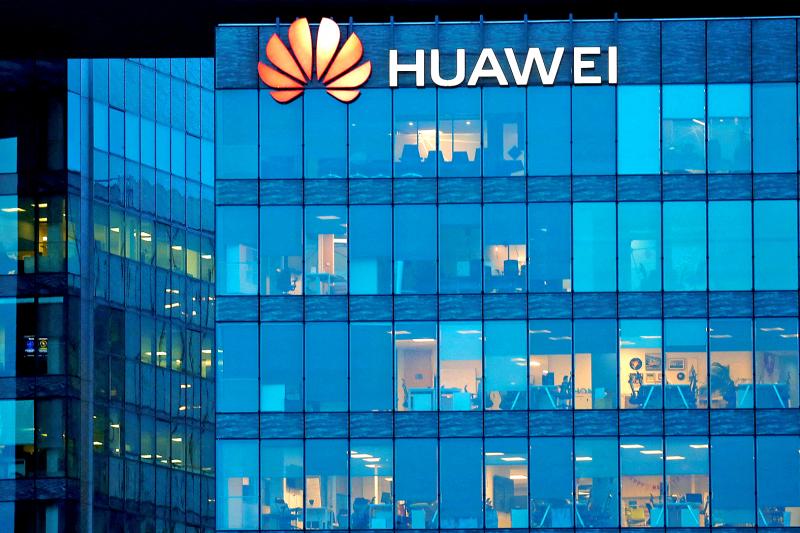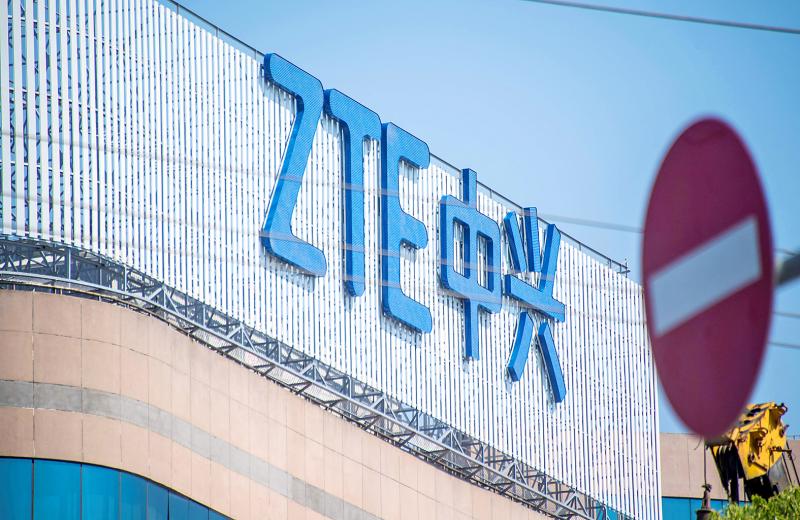Wireless carriers in Canada will not be allowed to install Huawei Technologies Co (華為) equipment in their high-speed 5G networks, the Canadian government said on Thursday, joining allies in banning the giant Chinese technology company.
China yesterday condemned the ban, describing it as “groundless” and based on spurious security risks.
Canada had been the only member of the Five Eyes intelligence-pooling alliance — which includes the US, the UK, Australia and New Zealand — not to bar or restrict use of equipment from Huawei in its 5G networks.

Photo: Reuters
“We are announcing our intention to prohibit the inclusion of Huawei and ZTE [中興通訊] products and services in Canada’s telecommunications systems,” Canadian Minister of Innovation, Science and Industry Francois-Philippe Champagne said.
Canada’s ban also includes ZTE Corp, one of China’s biggest tech companies and one that is state-owned.
“Providers who already have this equipment installed will be required to cease its use and remove it,” Champagne said, adding that Canada’s wireless companies would not be offered compensation.

Photo: AFP
Canada’s major wireless companies had already started working with other providers.
“There are many hostile actors who are ready to exploit vulnerabilities in our defenses,” Canadian Minister of Public Safety Marco Mendicino said.
The government did an extensive review and is redoubling efforts to protect Canadians, he said.
China condemned the move against one of its national champions as a form of “political manipulation” carried out in coordination with the US, which was aimed at “suppressing” Chinese companies in violation of free market principles.
“China will comprehensively and seriously evaluate this incident and take all necessary measures to safeguard the legitimate rights and interests of Chinese companies,” the Chinese embassy in Canada said in a statement posted on its Web site.
The US government has been lobbying allies like Canada for years to exclude Huawei from new ultra-fast 5G mobile networks over worries that Beijing could compel the company to help with cyberespionage.

A Ministry of Foreign Affairs official yesterday said that a delegation that visited China for an APEC meeting did not receive any kind of treatment that downgraded Taiwan’s sovereignty. Department of International Organizations Director-General Jonathan Sun (孫儉元) said that he and a group of ministry officials visited Shenzhen, China, to attend the APEC Informal Senior Officials’ Meeting last month. The trip went “smoothly and safely” for all Taiwanese delegates, as the Chinese side arranged the trip in accordance with long-standing practices, Sun said at the ministry’s weekly briefing. The Taiwanese group did not encounter any political suppression, he said. Sun made the remarks when

The Taiwanese passport ranked 33rd in a global listing of passports by convenience this month, rising three places from last month’s ranking, but matching its position in January last year. The Henley Passport Index, an international ranking of passports by the number of designations its holder can travel to without a visa, showed that the Taiwan passport enables holders to travel to 139 countries and territories without a visa. Singapore’s passport was ranked the most powerful with visa-free access to 192 destinations out of 227, according to the index published on Tuesday by UK-based migration investment consultancy firm Henley and Partners. Japan’s and

BROAD AGREEMENT: The two are nearing a trade deal to reduce Taiwan’s tariff to 15% and a commitment for TSMC to build five more fabs, a ‘New York Times’ report said Taiwan and the US have reached a broad consensus on a trade deal, the Executive Yuan’s Office of Trade Negotiations said yesterday, after a report said that Washington is set to reduce Taiwan’s tariff rate to 15 percent. The New York Times on Monday reported that the two nations are nearing a trade deal to reduce Taiwan’s tariff rate to 15 percent and commit Taiwan Semiconductor Manufacturing Co (TSMC, 台積電) to building at least five more facilities in the US. “The agreement, which has been under negotiation for months, is being legally scrubbed and could be announced this month,” the paper said,

Japan and the Philippines yesterday signed a defense pact that would allow the tax-free provision of ammunition, fuel, food and other necessities when their forces stage joint training to boost deterrence against China’s growing aggression in the region and to bolster their preparation for natural disasters. Japan has faced increasing political, trade and security tensions with China, which was angered by Japanese Prime Minister Sanae Takaichi’s remark that a Chinese attack on Taiwan would be a survival-threatening situation for Japan, triggering a military response. Japan and the Philippines have also had separate territorial conflicts with Beijing in the East and South China